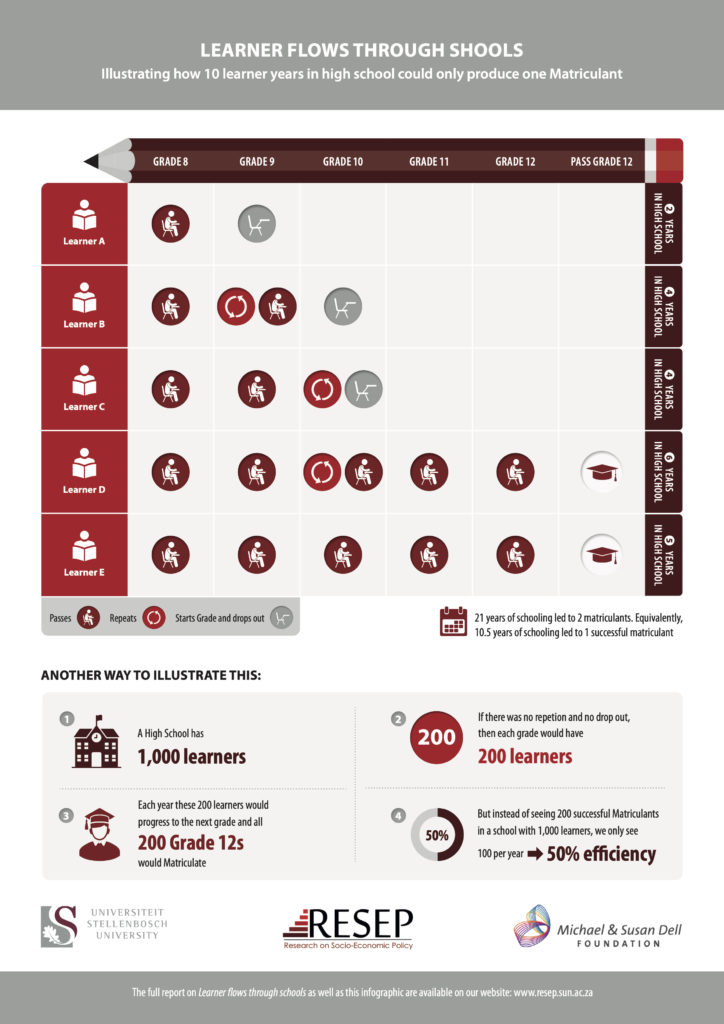
The report analyses school flows, repetition, and dropout using a novel analysis of school-based assessments, and how well these predict future performance and learner flows. An important finding is that the high repetition and dropout rates in high schools imply an internal efficiency rate of only 49% (measured in terms of the years of enrolment in high school for every matric pass).

Teacher supply and demand is a complex matter. The ultimate aim is to have a teacher in front of every class, now and for the foreseeable future. This also implies an ideal class size. The quality of teachers is obviously important too – and a topic for another occasion.

As Visiting Fellow with the Institute of Social and Economic Research (ISER) at Rhodes University, Martin Gustafsson recently produced a policy and literature review titled ‘Carbon taxes and the attainment of emissions reductions targets in South Africa: A critical stocktaking of recent analyses and policies’.

Repetition is a serious problem in South Africa, and the Western Cape is no exception. In any given year between 2007 and 2019, repetition has ranged between 72,000 and 100,000, with notable enrolment bulges in grades 1, 4, 9 and 10. An important consequence of repetition—when not cancelled by dropout—is an increase in the proportion of children who are older than what would be considered appropriate for a particular grade. For example, at least a third of grade 12 learners in 2019 were overage.

When meeting Dumisani Hompashe and listening to his story, the word “resilience” automatically comes to mind. Because resilience is the silver thread running through his entire life, from his childhood to his part-time PhD studies in Economics at Stellenbosch University (SU).







